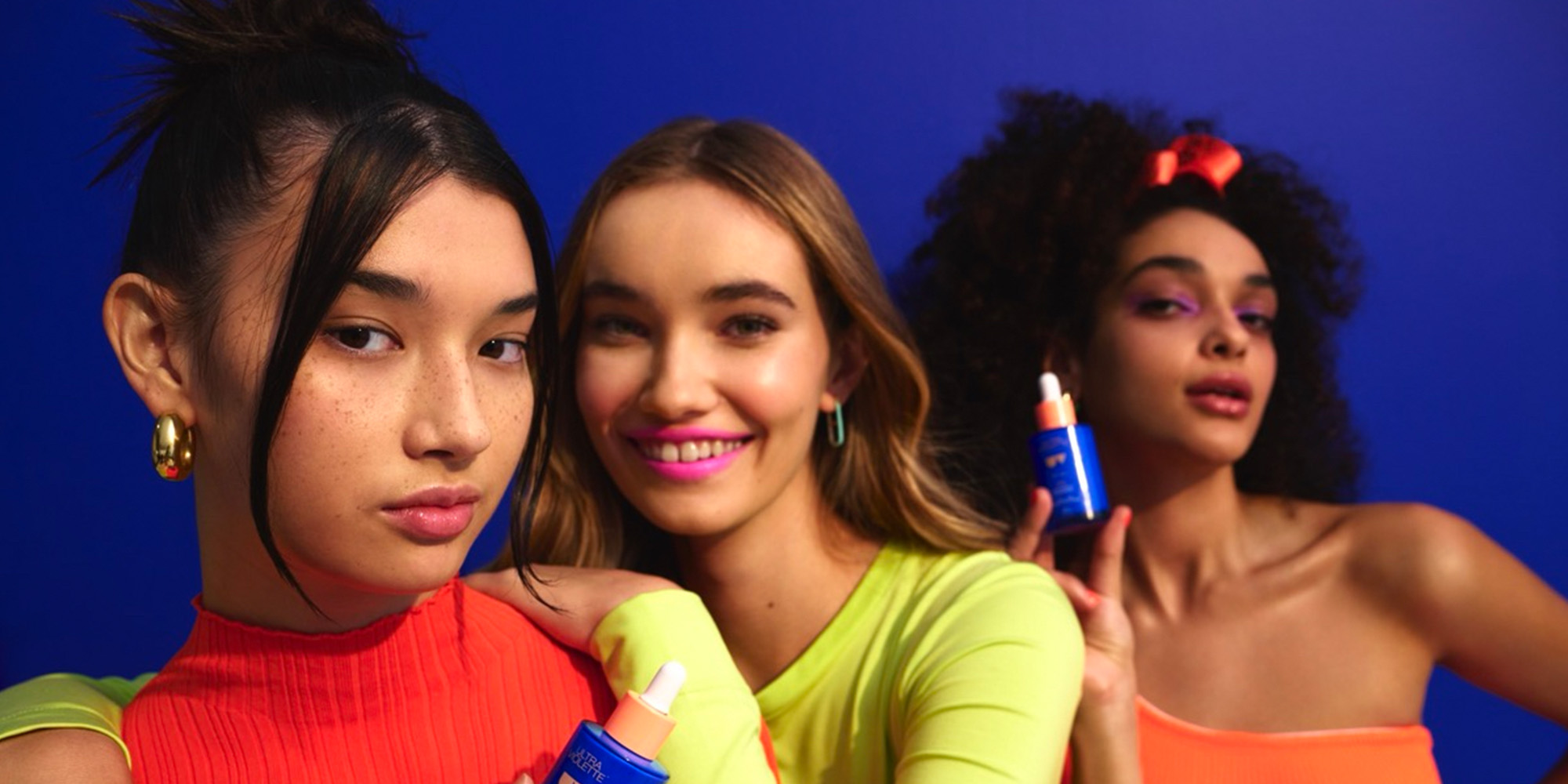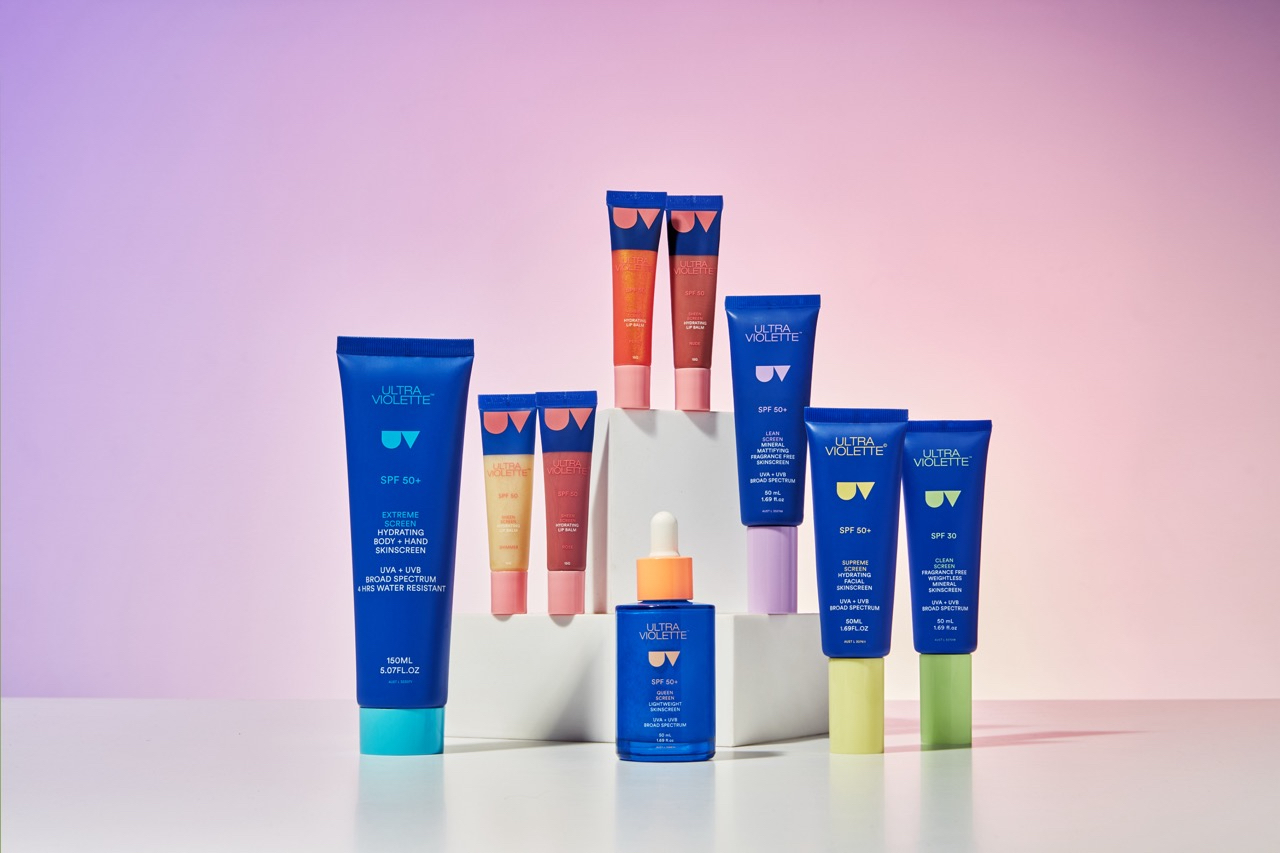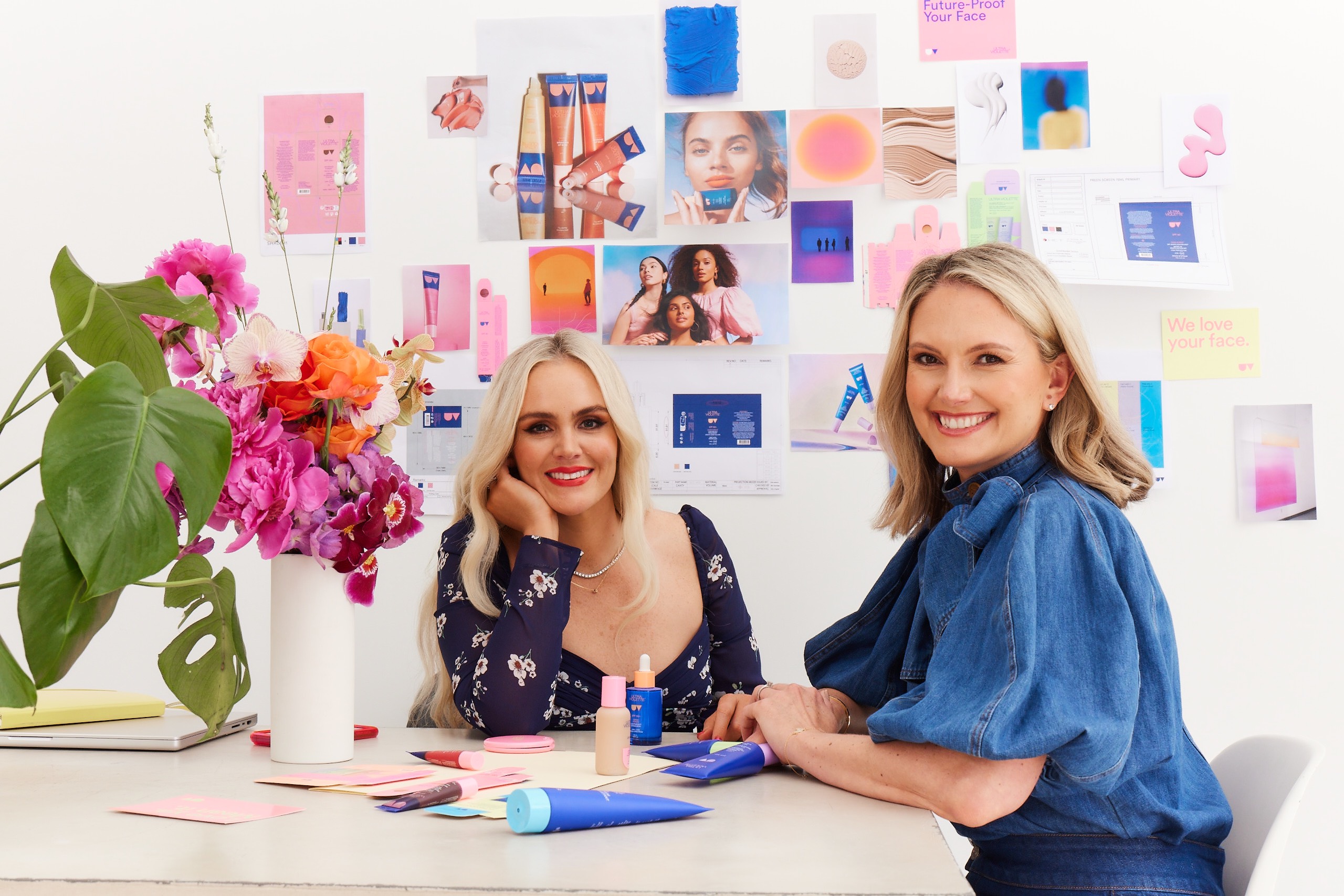
Armed With $10M From Aria Growth Partners, Australian Sun Care Brand Ultra Violette Pursues North American Expansion
With new funding to pad its budgets, Mebourne-based Ultra Violette is executing big plans to conquer North America.
The sunscreen brand, which has sold a minority stake to Aria Growth Partners, the growth equity firm that helped shepherd Hero Cosmetics to a $630 million exit to Church & Dwight in 2022 and backs The Inkey List, for roughly $10 million, is launching at Sephora Canada in March and expects to be available in retail in the United States in 12 to 18 months, probably at Sephora as well. The North America retail moves come after Ultra Violette has been a hit at retailers in Australia and the United Kingdom. It’s the No. 4 skincare brand at Space NK in the U.K. and the No. 2 skincare brand at Sephora Australia.
“Beauty is just one of those categories where brands tend to translate globally. Aria invests in food and beverage, and those brands are harder to take from one country to another,” says Jackie Dunklau, co-founder and partner at Aria. “Specifically, Australia is looked to as the authority on sun protection given that their ozone layer is the thinnest, their population has a tendency toward skin cancer, and they are doing the most R&D in the world. Similar to the way people talk about K-Beauty and South Korea being an authority on skincare and a place people look to for innovation, Australia is a place where people look to for sun care innovation, and that’s great for Ultra Violette.”

Prior to Aria’s investment in Ultra Violette, the brand was bootstrapped. Ava Chandler-Matthews and Rebecca Jefferd, previously colleagues at Australian beauty retailer Mecca, launched it in 2019 with around $295,000 from their personal savings. Discussing the brand’s partnership with Aria, Chandler-Matthews says, “We didn’t need the money. We were profitable and had great cash flow. Did we have the money to turn on the U.S. within a year if we needed? Maybe not. We knew we were growing quickly globally, and more than anything we really wanted strategic advice from a U.S. partner because North America was a market we were entering.” She notes, “We have always been out to be the No. 1 global premium SPF brand.”
In direct-to-consumer distribution to start, Ultra Violette broke into retail four months into its business at Adore Beauty, where it was interested in aligning with the Australian e-tailer’s skincare expertise. Calling its products skinscreens rather than sunscreens, the brand takes a skincare-centered approach to sun care. Today, along with Adore Beauty, Sephora Australia and Space NK, its retail network extends to Harrods and Liberty, and its DTC distribution spans 28 international markets across Australia, Europe, Asia, the Middle East and U.K.
Ultra Violette’s sales have been advancing at a 100% yearly clip. The brand didn’t disclose exact sales, but Aria typically invests in brands generating $10 million to $50 million in annual revenues. Ultra Violette has a dozen products priced primarily from 27 to 55 Australian dollars or roughly $20 to $36 at the current exchange rate. The brand’s hero product is Supreme Screen SPF 50+ Hydrating Facial Skinscreen, and it’s slated to release one to major products per year. Ultra Violette’s products use eight chemical ultraviolet filters, including filters not permitted by the U.S. Food and Drug Administration, a hurdle for the brand as it travels to the U.S.
Chandler-Matthews identifies bemotrizinol, an ingredient that’s been under study by the FDA almost 20 years and is in Ultra Violette’s products, as a UV filter the brand could incorporate in products for the U.S. if the ingredient gains FDA approval. She says, “That update to the monograph would allow us to have a range that looks and feels like our range in the rest of the world. We are moving forward regardless. We have some great formulations with the current UV filters in the U.S.”
“We have always been out to be the No. 1 global premium SPF brand.”
Dunklau says, “We see the opportunity for them as really a prestige skincare brand that is going to offer people amazing formulations. They have done a really amazing job on new product development over the last 12 months to offer a wardrobe of different SPF products for different occasions. It’s about being able to protect your skin, but doing it in a way that is user friendly. You are really supposed to apply SPF throughout the day, but most people don’t do that yet, so being able to offer products for different parts of the day is what they’ve done a great job on.”
Aria had been closely tracking the sunscreen category for about three years to determine if it could play a role in it. Dunklau explains the firm was drawn to it due to the evolution of consumer habits from wearing sunscreen for specific moments (a beach day or tennis match, for example) to increasingly wearing it daily and the evolution of formulas that facilitate comfort for daily wear.
The premiumization of the sun care segment is attractive, too. Owned by private equity firm Blackstone, the brand Supergoop has been influential in leveling up the sunscreen category, historically the province of mass retail, at prestige retail, particularly Sephora, and newer brands like Dune and Pavise have followed it into the prestige sun care arena in the U.S. The premiumization has also been driven by in-the-know beauty consumers realizing the importance of sunscreen for warding off signs of aging and skin cancer.
Ultra Violette’s core customers are in-the-know consumers predominantly aged 20 to 35 years old who gravitate to its formulas and design. Inspired by Australia summers in the 1990s, the brand’s vibrant packaging features Yves Klein blue with pastel neon hues. According to Dunklau, its customers “love the high SPF protection factor that they get from it and the way that Ultra Violette works well with other products in their beauty routine, and I always felt the brand and the packaging was very modern.”

Ultra Violette has about 20 employees globally. Chandler-Matthews and Jefferd remain on board as operators, and the brand is building a team in the U.S. to assist with its North American business. As it establishes milestones it anticipates reaching in the next few years, it’s cognizant of leaving opportunities on the table for a buyer down the line. It has plenty of room to expand in Asian countries such as China, Japan and South Korea, and even if it lands at Sephora in the U.S., Ulta Beauty is an open possibility, too, and it could target the professional beauty channel in the future.
A strategy that’s not on the roadmap is introducing a secondary line for the mass market. Dunklau says, “I always think it’s hard enough to build one brand.”





Leave a Reply
You must be logged in to post a comment.